The Checker Maven
Life Is Full of Tough Choices
The last offering for February is two problems in one. It's based on something published by Willie Ryan many years ago. The adaptation of the setting is rather liberal.
Here's the situation. You're in the final round of the Mega-Bowl of Checkers. The coveted title of Supreme Exalted Checker Champion hangs in the balance. Thousands of avid fans are watching from their $500 stadium seats and hundreds of thousands more are tuned in on the Checker Television Network. Sponsors have paid a million dollars each just for their 30-second commercial spots. This is really the Big Time, and you know if you win you'll become an instant media star, with wealth and fame yours without limit.
You're playing Black and it's your move:
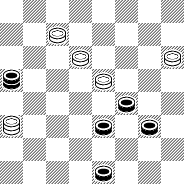
BLACK (you)
What move do you choose? Can you show how that move wins and why the other move loses?
Make your choice carefully; a lot is riding on it. Then take a look at the animated solutions in which Black wins or White wins.
A New and Original Online Play Site
We've come across what must be a fairly new site but one that has really captured our attention. It's called TurnPlay and it's simple, focused, and unique. This site has a lot of promise and we hope that it attracts its share of users. It is sure to appeal to the serious checker player.

TurnPlay is not a site for a casual head-to-head "pickup" game. It is instead a site which you can use to establish games with other players, who don't even have to be members themselves, and then engage in serious play backed by a game moderation system that works the way it ought to, including the use of correct PDN for moves.
In addition, the site allows for setup and play of an arbitrary position, something we have yet to see elsewhere.
Memberships are inexpensive at $20 per year although free guest memberships offer many of the important features, including unlimited play.
Check out the review and then check out the site. And if you like it, support them by joining.
Addendum
We did, by the way, also just now review another site which offers email turn-based play of something they believe to be checkers (although we beg to differ). We won't embarrass them, or us, by mentioning its name in The Maven, but the full review is here if you'd like to see for yourself.
Update
Missing screen shot images for about half a dozen sites on the review page have been restored as of 05 March 2005; our apologies for any inconvenience.
Computer Cheating in On-Line Checkers
We received this email today:
"I see a lot of people using a Cheating program for playing checkers on Yahoo. Where are they getting it from? Thanks"

It's pretty sad, isn't it? We can only hope that some day, these folks might get a life and realize that there is no shame in losing with grace and sportsmanship, and that relying on your own skills and accepting the results is what makes a true winner.
[Read More]Two Easy Pieces
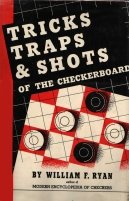
This excellent book of tactics is extremely difficult to find at any price. Yet, it is such a valuable reference and training book for beginner and intermediate alike, that The Checker Maven has decided to produce, over a period of months, a freely available electronic version. (Recall that we did the same with Arthur Reisman's fine book of basics, Checkers the Easy Way, available in Postscript and PDF formats.) The copyright is long expired, and there are no legal or ethical barriers to republication.
We'll present a few pages in The Maven every few weeks, as mood and opportunity catches us; and we'll simultaneously gather it all together in what will eventually become a newly-typeset printable book.
Let's start off, then, with a pair of problems from the introductory pages of the book. We've called them Two Easy Pieces, and though these are speed-solvers for the experienced player, they present important basic concepts for the learner to master. Willie's own entertaining commentary accompanies each problem.
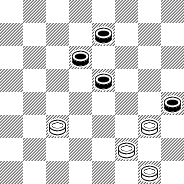
White to Play and Win
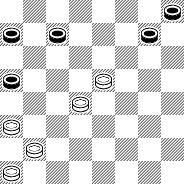
White to Play and Win
When you've given these a good try, click on Read More for the solutions.
[Read More]Remarkable, Indeed
In January we presented a mind-boggler of a stroke problem (click here to see it again). This month, we offer another brain-twister of a different nature. Take a look at the situation diagrammed below, titled Remarkable Block Problem and attributed to an author calling himself "X.Y.Z."
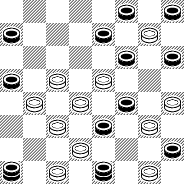
WHITE
White to Move and Win
It all reminds us of Crowther's original Adventure game in which "you're in a maze of twisty passages..." But that was "XYZZY", not "X.Y.Z."
And, by the way, did you try to get your computer to solve this one? It's doubtful that any computer program would be able to come up with the solution. Click on Read More for some supplementary discussion on why this might be.
[Read More]Happy 90th Birthday, Mr. Richard Fortman!

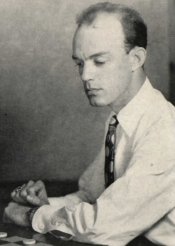
Marujito: A New Checker Playing Engine
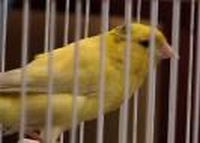
As those of you know who follow my checker program review page, I test nearly all new programs against Martin Fierz's Simple Checkers, an engine that I rate as "Class C" meaning it plays a good casual game, if short of expert or master level. Simple generally destroys the competition as, alas, the majority of checker programs out there aren't all that great.
Well, this new kid on the block is no comical bird, despite its name. Marujito clearly outplayed Simple Checkers in a test game! The game was a very interesting matchup, with Marujito calculating a pretty way to win a piece and then correctly winning a 3 kings vs. 2 kings endgame--- something that the more basic programs very often fail to do.
You can view the full game in animated form, with comments and evaluations, here. But before you do that, take a look at this position:

BLACK (Marujito)
Black to Play and Win
The Checker Maven congratulates program author Angel Galan Galan on turning out a checker engine that plays a very good game and will be a lot of fun to use as a casual sparring partner.
A summary review of Marujito now appears on the review page.
Who Was That Masked Man?
1. Solve the problem (of course).
2. Identify the person in the photo (on the left), who is the problem's compositor. You can click on the photo for a full-size version.
February's entry will be what will probably turn out to be the easiest of the three, at least in terms of identifying the person in the photo; we're not so sure about the problem itself! Here it is:
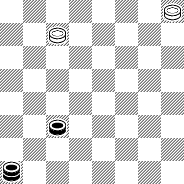
BLACK
Black to Play and Win
Are You Faster Than the World Champion?

Can you beat the World Champion? The clock is ticking!
(The Maven thanks Brian Hinkle for sending this one along.)
Now click here to see the animated solution. Did you beat the Champion? Record your results here.
Solutions and Follow-Ups from January, 2005
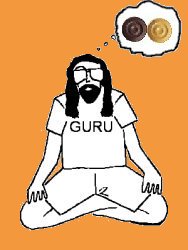
Also last month, we updated our review of the Blondie24 computer program. Click on the link, and then take a look at the animated game between Blondie and Simple Checkers to see how surprisingly well these two fare over the board.
And finally, we've done a complete rewrite of our article, So This Is Checkers?, as we've come across a lot of supplementary information about interesting checker variants both old and new.
The Little Fooler
The feature problem for February is entitled The Little Fooler and is credited to Tom Wiswell and Jimmy Ricca. No less an authority than Ben Boland himself called this "a fine original problem." Skilled solver Brian Hinkle took almost a month to crack it.
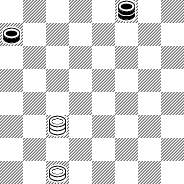
WHITE
White to Play and Win
Give this gem a really good try; your efforts will be well rewarded. After you've tried it, vote on how hard you thought it was, and click on Read More for the elegant solution.
[Read More]
